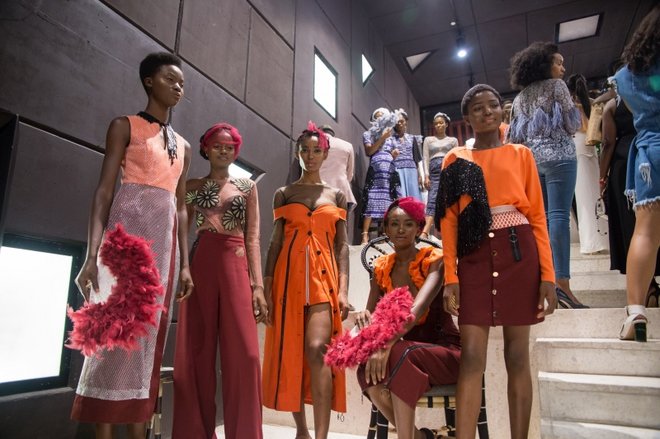
by Marjon Carlos (Vogue)
♦ On the Friday evening of Lagos Fashion and Design Week, there was much talk of how one was going to make it from the Federal Palace Hotel grounds—where LDFW’s four-day fashion and retail event was staging over 50 runway shows—to the David Adjaye–designed concept store Alara in time for designer Maki Osakwe’s Maki Oh Spring 2017 presentation. The city’s nonstop traffic was a concern, but the crowd was eager to see what Nigeria’s most successful fashion export, whose fans that include Michelle Obama, Lupita Nyong’o, and Beyoncé, was up to for next season. This reporter arrived just in time to see the Maki Oh models traipse down the store’s stone steps in red off-the-shoulder jumpsuits, purple and coral frocks, a tangerine blouse trimmed with black fringe, and silk skirts printed with “Oh Oh Oh.” Who needs front row seats with fashion this colorful?
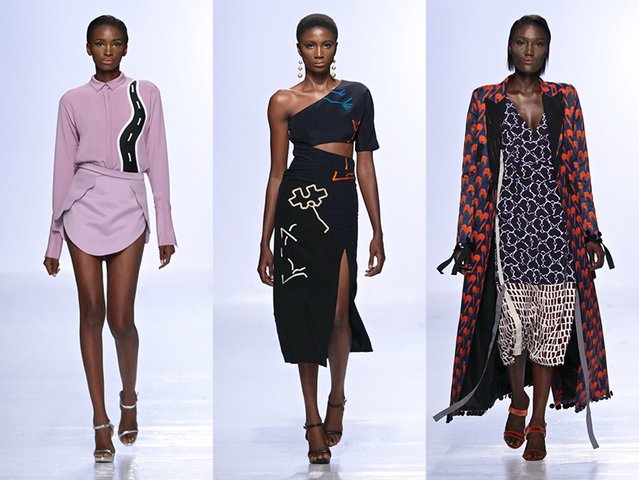
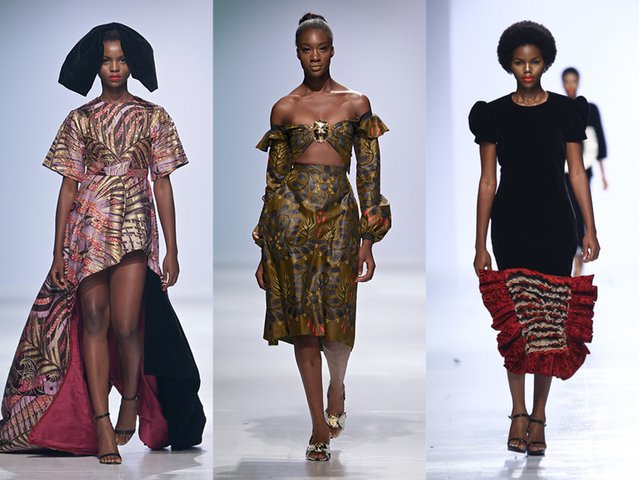
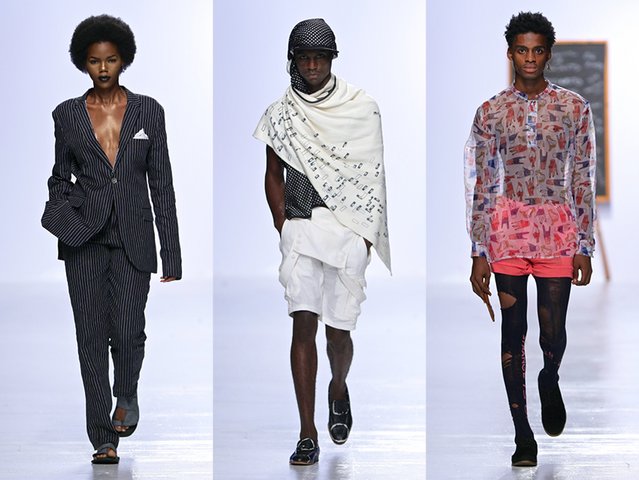
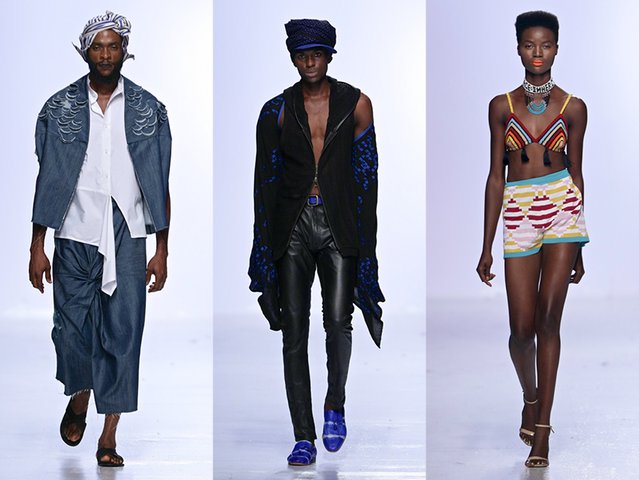
The University of Bournemouth graduate has developed a strong identity in the six years she’s been designing, with signatures that have begun to rub off on her contemporaries. Ruffled trimmed skirts, frill-edged blousons, and hatch-mark prints à la Maki Oh were sprinkled throughout the Lagos collections. This isn’t to suggest that Osakwe’s fellow designers lack points of view of their own, though. Hardly. Tsemaye Binitie’s graphic printed midi-length frocks and paillette mesh skirts are made with his muse and sister, Temikawo, in mind. Lisa Folawiyo delivered a swath of options for Nigerian It girls, doubling down on her trademark combination of reimagined African prints and modern, sculptural silhouettes. And Bridget Awosika’s return to the Nigerian fashion scene after a year hiatus was a triumphant one.
On the menswear front, Orange Culture’s Adebayo Oke-Lawal spun an edgy tale of schoolboy chic, showing natty and colorful short suits; Kenneth Ize’s oversize and conceptual pinstriped suiting was fit for both men and women; and Naked Ape’s swaddling details and heavy layering restylized the traditional caftan and fila for the modern Naija man. At Johnson Johnson, after the designer Johnson Iyaye Rotimi and his cast of male models returned to the runway for a final bow with roses in hand, Rotimi got down on one knee to propose to his shocked girlfriend. Considering the robust wedding market the country boasts, the moment immediately went viral.
That streak of spontaneity resurfaced in the use of unexpected textiles. Despite West Africa’s scorching heat, Naked Ape made a case for leather pants, and Lanre Da Silva Ajayi proposed velvet cocktail dresses. Nkwo’s experimental approach to denim was a dazzling moment—with the psychologist turned designer fashioning shredded denim skirts and vests for both women and men. Equally impressive were the bra tops and matching shorts made from Xhosa-inspired knitwear by South Africa’s MaXhosa by Laduma. This fabric innovation speaks not only to the full-on commitment I noticed chic Nigerians give to their looks, but also to the industry’s intention to attract global customers. Textile behemoth Vlisco’s collaborative line, which featured designs from Loza Maléombho, Lanre Da Silva Ajayi, and Elie Kuame, paid homage to the wax prints and Ankara fabrics that are bedrocks of African fashion, while pointing toward the industry’s modern evolution.

Leave a Reply